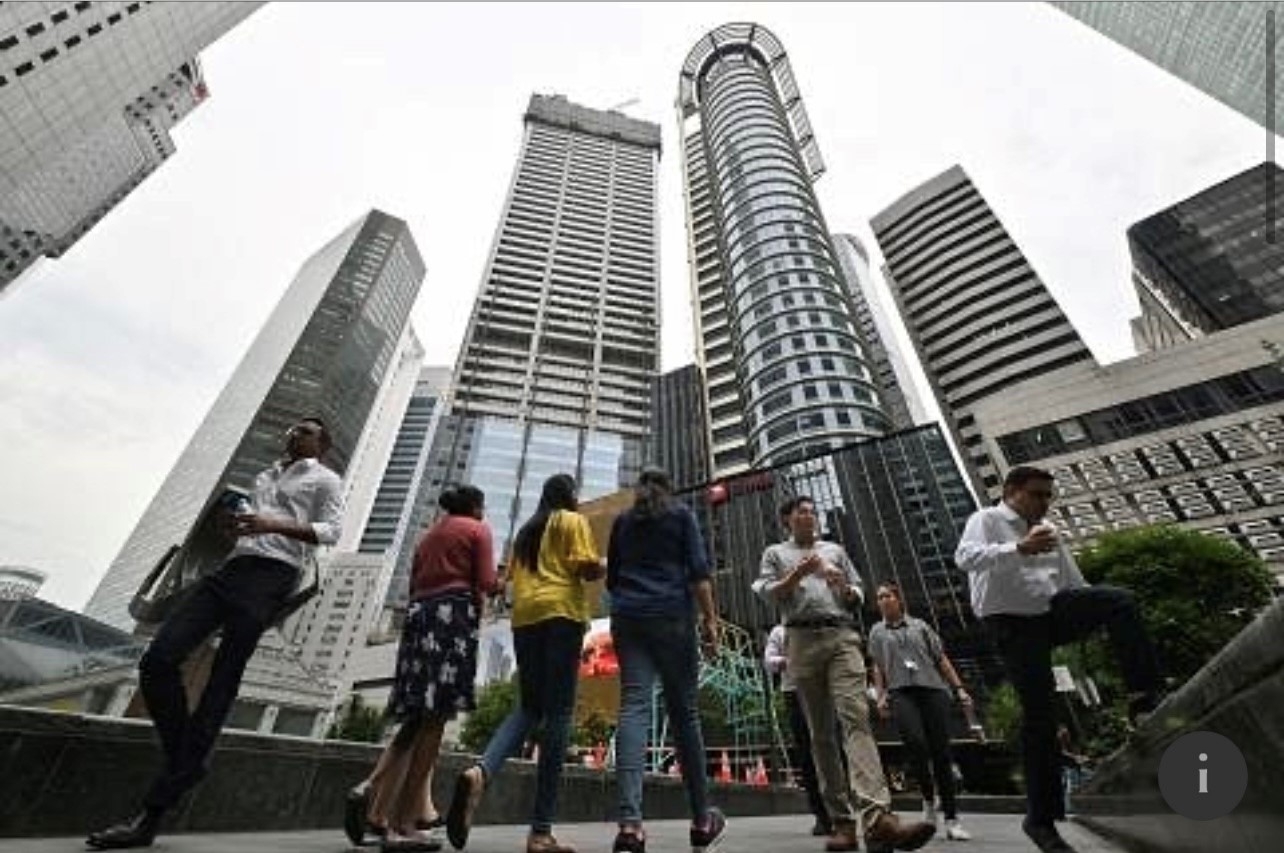Tech layoffs hit S’pore’s office sector as Google gives up space, but analysts see bright spots

The ripple effects of tech layoffs have reached the office sector here, hurting investor sentiment in landlords that are typically real estate investment trusts (Reits) listed in Singapore.
Amid the gloom, there are still bright spots in the office sector, and analysts said office Reits are looking attractive.
United States Internet giant Google, Facebook owner Meta, Twitter and consumer Internet company Sea are among some of the companies that have announced layoffs here.
Google will also give up a portion of its 344,100 sq ft space at Alexandra Technopark, where it is a major tenant, from Feb 20, 2024.
Frasers Logistics & Commercial Trust, which owns Alexandra Technopark, said in a stock exchange filing on Feb 22 that the space Google will give up represents a loss of about 1.7 per cent of its gross rental income for December 2022.
There have also been concerns that Twitter will move out of its office space at CapitaGreen in Raffles Place after staff were reportedly told to empty their desks and vacate the premises, and to work remotely.
Twitter is one of the top three tenants by gross rental income at CapitaGreen, according to CapitaLand Integrated Commercial Trust’s (CICT) website. A spokesman for the Reit manager has said Twitter is still a tenant.
Then there was news that Sea, which owns e-commerce platform Shopee, is looking to sublease its office space at Rochester Commons, a mixed-used development developed and managed by CapitaLand Development.
Savills Singapore’s executive director of research and consultancy, Mr Alan Cheong, said the office sector in Singapore has been resilient so far in the face of tech layoffs.
Most of the layoffs intensified towards the fourth quarter of 2022, but the impact of that will take a while to filter through to leases that the tech players have signed, which are mostly not due in 2023, Mr Cheong said.
The technology sector had continued to take up space during the first half of 2022, when it was still doing well, and that helped to cushion the slowdown in demand in the fourth quarter, he added.
Mr Vijay Natarajan, a real estate and Reits analyst at RHB Singapore, said demand from other sectors is supporting the office market in Singapore, even as demand from the tech sector slows.
“Singapore continues to attract a lot of companies to set up offices, especially in areas like family offices and wealth management,” he added.
Mr Cheong, however, noted that family offices do not need a lot of space, often taking up 3,000 sq ft to 5,000 sq ft. Such demand is therefore helping to fill up whatever remnant office space in the market.
“Being small, they have less bargaining power. This allows the office landlords to charge these family offices higher rents,” he said.
Demand for office space is also coming from companies that are looking to set up their regional headquarters in Singapore, said Mr Kenny Loh, a certified Reit trainer at the SGX Academy, the investor education arm of the Singapore Exchange (SGX).
“They want to put their manufacturing plants in Malaysia, Indonesia, Thailand or Vietnam, but they are not really familiar with South-east Asia, so they set up their regional base in Singapore,” he added.
Some office Reit managers have come out to allay investor concerns.
Keppel Reit mentioned during its full-year results released on Jan 27 that its tenant retention rate was 78 per cent for its financial year ended December 2022. Of the attributable spaces committed, 22.2 per cent were new leases and expansions from tenants mainly in the technology, media and telecommunications sector. This was followed by manufacturing and distribution (19.4 per cent) and banking, insurance and financial services (18.8 per cent).
The Reit’s office assets in Singapore include a 79.9 per cent stake in Ocean Financial Centre, a one-third interest in Marina Bay Financial Centre, a one-third interest in One Raffles Quay, and a 100 per cent stake in Keppel Bay Tower.
CICT said during the release of its full-year results on Feb 1 that committed occupancy of its office properties was 94.4 per cent as at Dec 31, 2022. It signed about 1.5 million sq ft of new leases and renewals for its office space, while its tenant retention rate for its office properties in Singapore was 80.9 per cent.
The trust owns offices assets including Asia Square Tower 2, CapitaGreen, Capital Tower, Six Battery Road and 21 Collyer Quay, and has a 70 per cent stake in CapitaSky.
Savills’ Mr Cheong said supply will also be relatively limited, with only two office projects – Guoco Midtown and IOI Central Boulevard Towers – coming on stream this year, which will provide some support for rents.
Savills expects its basket of Grade A offices in the business district to eke out a 2 per cent year-on-year increase in rents in 2023. For the whole of last year, its office rents rose by a similar margin of 2.2 per cent, after two consecutive years of declines.
Mr Cheong said more supply will probably come in 2024 and 2025, but by then, the economic cycles would have turned back up, spurring demand for office space in Singapore.
There are 37 Reits listed on the SGX and they are in various sectors, including office, retail, hospitality, healthcare and industrial.
Last year, the office sub-sector was the second-worst performer, with total returns, which include dividends, of minus 33.7 per cent, according to SGX.
RHB’s Mr Natarajan said Singapore-focused office Reits are now trading at about 30 per cent discount to book value. As a result, they are looking attractive from a valuation standpoint if the investor is taking a mid- to long-term investment perspective.
He said he prefers Reits with Grade A prime office assets in good locations and added that buildings with green ratings will demand a higher premium.
RHB also likes Keppel Reit – which Mr Natarajan noted is a pure-play office Reit, unlike others like CICT and Suntec Reit – “mostly on valuations”.
On the other hand, Morningstar equity analyst Xavier Lee said: “CICT’s diversified portfolio of high-quality office and retail assets can weather any possible economic downturn.”
Morningstar expects CICT to deliver a 6 per cent growth in distribution per unit (DPU) for fiscal year 2023, a sharp improvement from the 1.7 per cent DPU growth in fiscal year 2022.




